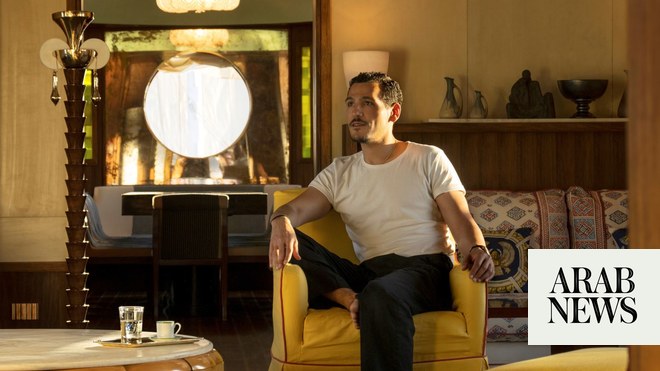
Abdulhakim Belhadj has shed his combat fatigues for gray sport jackets and crisp white shirts. He has given up his AK-47 rifle for an election ballot.
“My thinking of that time is not a reflection of the way I think now,” the compact 51-year-old said, referring to his fighting days in Libya.
But in a war-divided nation, penetrated by ISIS and struggling to forge a new identity, Libyans have not forgotten who Belhadj once was.
They remember that he fought alongside Osama bin Laden in Afghanistan. They remember that he led the Libyan Fighting Group (LIFG), an obscure, al-Qaeda-linked militia that the United States branded a terrorist organization. Belhadj was considered so dangerous that he was arrested and interrogated at a secret CIA rendition site in Asia after the Sept. 11, 2001, attacks. Later, he was tortured in a Libyan prison.
Today, as key players in the contest between Islamists and their rivals for the soul of the new Libya, Belhadj and his comrades represent a rare instance of former militias associated with al-Qaeda achieving not just legitimacy but the ability to shape the course of a nation.
“These guys are very involved in the political landscape of running things in Tripoli,” said Claudia Gazzini, senior Libya analyst for the International Crisis Group. The worry for some, she said, is: “Have they really shed their extremist upbringing?”
The trajectory they followed is a winding — and uniquely Arab — one. The group dates to the battlefields of the Cold War and blossomed under the oppression of Libya’s autocratic leader, Moammar Gaddafi. During the Arab Spring, Belhadj and his comrades played crucial roles in the revolt that led to the strongman’s ouster and killing, six years ago next month.
Now, as he navigates Libya’s regional and tribal schisms, Belhadj enjoys power, influence and wealth. But he remains a widely feared and controversial figure, viewed as a warlord and a terrorist mastermind, even as his supporters paint him as a misunderstood idealist.
“Belhadj represents a threat now and will do so in the future,” said Abdullah Belhaq, a spokesman for Libya’s eastern-based parliament. “He is followed by a number of armed militias, and they will always be against the establishment of a state, to safeguard their interests.”
I first met Belhadj, a civil engineer by training, in May 2010 in the Libyan capital, Tripoli. He and several LIFG leaders had recently been released from prison under an extremist-rehabilitation program conceived by Gaddafi’s son Saif al-Islam Gaddafi. In exchange, they vowed to renounce violence and work to discredit al-Qaeda.
Many Libyans and Western diplomats were skeptical. Belhadj and his comrades were among scores of Libyans who had traveled to Afghanistan to fight the occupying Soviet forces. They met bin Laden in a training camp, an LIFG co-founder, Sami al-Saadi, told me at the time. He was impressed, he said, by bin Laden’s “devoutness.”
Belhadj returned to Libya in the early 1990s. There, he launched the LIFG to overthrow Moammar Gaddafi and transform Libya into an Islamic emirate. A low-level insurgency followed, as well as three failed attempts to assassinate the dictator. By then, Belhadj was known by his nom de guerre, Abu Abdullah al-Sadiq.
Gaddafi’s regime crushed the LIFG, and by the late 1990s Belhadj and his comrades had fled to Afghanistan and Pakistan, where they forged alliances with leaders of al-Qaeda and the Taliban, according to Libyan authorities and analysts. Belhadj, while acknowledging the links, denied he was close to either group.
In the months before the 9/11 attacks, bin Laden urged the LIFG to join his efforts to target the United States and its allies. Belhadj balked. His group’s sole mission, he said recently, was to topple Gaddafi, not attack the West — “and I told it to the al-Qaeda leaders.” But the LIFG split over that choice, and some senior members joined bin Laden.
In late 2001, with the Taliban decimated and bin Laden on the run, many LIFG commanders fled the region. Three years later, Belhadj and his pregnant wife were arrested in Kuala Lumpur, Malaysia, and taken to a CIA site in Thailand. Saadi and others were arrested elsewhere in Asia.
They were handed over to the Libyan government. Gaddafi, once a sponsor of terrorism, had become a counterterrorism ally of the West.
For six years, the LIFG leaders were held in the notorious Abu Salim prison in Tripoli. “I was beaten, hung from walls by my arms and deprived of food and sunlight,” Belhadj recalled. He has sued the British government for allegedly playing a role in returning him to Libya.
Human Rights Watch investigators, citing documents unearthed in Libya, corroborated Belhadj’s accounts of the CIA rendition and torture in Abu Salim.
Encouraged by moderate Islamist preachers and the younger Gaddafi, Belhadj and his comrades crafted a 400-page manifesto denouncing al-Qaeda’s beliefs and attacks on Western civilians.
Still, waging “jihad” against US forces in Iraq and Afghanistan was “a sacred act,” they maintained. “When America invades a country, the insurgency is legal,” Belhadj told me in 2010.
A year later, a violent uprising, echoing similar ones sweeping the Arab world, began. Belhadj and his comrades, with their anti-Gaddafi credentials, were catapulted into leadership roles.
Belhadj became the commander of the Tripoli Brigade, a rebel militia, and on Aug. 22, 2011, he and his men entered the Bab al-Aziziya compound, Gaddafi’s fortress and nerve center.
For the past several months, they had helped lead the battle against Gaddafi’s forces, aided by NATO airstrikes. On this day, they were close to seizing control of Tripoli, and Gaddafi had fled east.
Belhadj was named the leader of the Tripoli Military Council, the committee in charge of keeping order in the capital after Gaddafi was killed by rebels less than two months later. He would also join the rebels’ Supreme Security Council. Other LIFG members joined Islamist movements and ran religious youth camps, advocating strict Islamic sharia laws.
Saadi founded a political party. Khalid al-Sharif, the deputy emir of the LIFG, was appointed deputy defense minister in two post-Gaddafi governments.
In 2014, Belhadj and other LIFG members backed Libya Dawn, a collection of armed militias that briefly seized control of Tripoli and proclaimed their own government. Their actions split public opinion.
Even though he holds no official position in government, his well-armed loyalists wield power in the capital. But because he has moved out of the public spotlight and kept his political and business dealings secret, he remains an enigma to many Libyans.
While some Libyans now view Belhadj as a businessman, others beg to differ. They believe “he’s just pretending to be all about business but he’s still calling all the shots,” said Gazzini, of the International Crisis Group.
Belhaq described Belhadj as exercising immense power largely through ill-gotten money, noting that within two years of his release from prison he owned an airline company. “Where did he get these billions from?” the eastern parliamentary spokesman said.
Belhadj resigned from the Tripoli Military Council to launch his own political party, al-Watan, or “Homeland.” He believes in democracy, he said, and ran unsuccessfully in national parliamentary elections in 2012. He insists he no longer controls a militia. He supports the UN-backed government, he said, because “we don’t want to be out of the international community.”
The Washington Post












